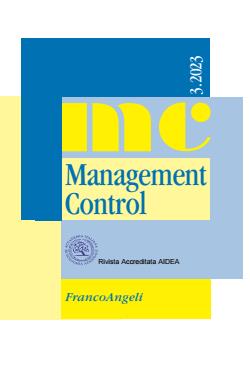
LIBRI DI ALESSANDRA LARDO


In the current digital economy, every sort of organization today must invest in dig-italization in order to remain competitive, to enhance business operations, and to increase profitability. Even within professional football clubs, the use of new tech-nologies has become essential, both from a sports point of view, to improve play-ers’ performance and team results, and, from an economic point of view, to im-prove company management and increase revenues. The objective of this study, which employs a quantitative research approach, is to identify the sporting, economic, and financial performance measures on which the digitalization of these sectors has a significant impact. Digitalisation was analysed from the perspective of intellectual capital, a general indicator of digitalization was created and calculated for each of the 20 Serie A clubs. It was then associated with the key economic, financial, and sporting performance factors. The analysis showed a significant positive correlation with the following variables: i) final placement; ii) number of goals scored in the season; iii) turnover; iv) annual costs of players and coaches; and v) annual costs of players and coaches plus their depreciation. These results provide insight into how digitalisation is pivotal for professional football clubs and may prove useful for managers and board mem-bers of such clubs, academic researchers and practitioners.

The paper investigates the issue of team performance measurement and man-agement in the self-styled ring organizations. The objective is to demonstrate whether, within a team, there are individuals who are able to influence to a greater extent an organization’s results and whether there are performance parameters that allow the identification of such individuals. The research was conducted through the application of the O-ring theory’s theoretical framework in the context of the football clubs. The research method used is exploratory, with an empirical analysis based on two distinct research steps aimed at ascertaining which individ-ual within a team is able to affect the team performance the most. The results of our research, deriving from a correlation analysis, propose to the scientific com-munity and to chiefs who manage ring organizations a performance measurement model where greater weight must be given to the risk deriving from the weak link’s possible inefficiencies and inadequate performance. Starting from the analysis of football clubs, we intend to challenge previous famous theories and to a certain extent the relevant literature on team performance management in specific kinds of companies that present a high degree of interdependence between the individu-als who compose them.

Profili teorici e dinamiche evolutive nella prospettiva economico-aziendale
Il volume analizza i profondi cambiamenti apportati dalla digitalizzazione e dalle nuove tecnologie alla gestione delle copyright-based company. L’analisi intende fornire un’approfondita comprensione dell’Intellectual Property Management con particolare riferimento alla gestione del diritto d’autore, nella triplice prospettiva strategica, contabile e valutativa.
cod. 384.1

The purpose of the paper is to analyse how Intellectual Capital (IC) of contemporary companies can be used as management control tool, by proposing it as a driver for sport and financial performance from a value creation perspective. Through a quantitative method with an empirical application, the research investigates the football industry. The IC of professional football clubs has been identified in three components: the first team players, the brand and the right of qualification for the competition on sporting merit. The outcomes of the new model based on IC enhancement allow defining a new use of it as management control tool and a driver for clubs’ managers, overcoming the traditional models of traditional objective functions, which do not consider the managers’ role. Furthermore, the new objective function, defined by the research, allows managers to make strategic decisions finalized to achieve clubs success in compliance with ownership aims. Therefore, this study provides a control tool and a driver for managers’ performance that can be used by company ownership.

The purpose of this paper is to discover the connection between the introduction of the double entry bookkeeping method and accounting controls within the Abbey of Montecassino. In particular, the analysis aims to explore the accounting history at the time of the entrance into the Santa Giustina Congregation from the 15th to 17th century. Adopting a diachronic approach, the paper is developed with the aim to understanding if there is a link between entrance into the Santa Giustina congregation and introduction of the double bookkeeping method in 1504. It proves that accounting behaviours are strongly connected with the need for controls between accountants and external users of accounting books, confirming the hypothesis of the new accounting history theory that considers bookkeeping as social construction. The methodology is based on a comparison between two different methods of recording in the Abbey of Montecassino: the first refers to the period from 1450 to 1504 (Commendatory era) while the second considers the period after entrance into the Santa Giustina Congregation in 1504.